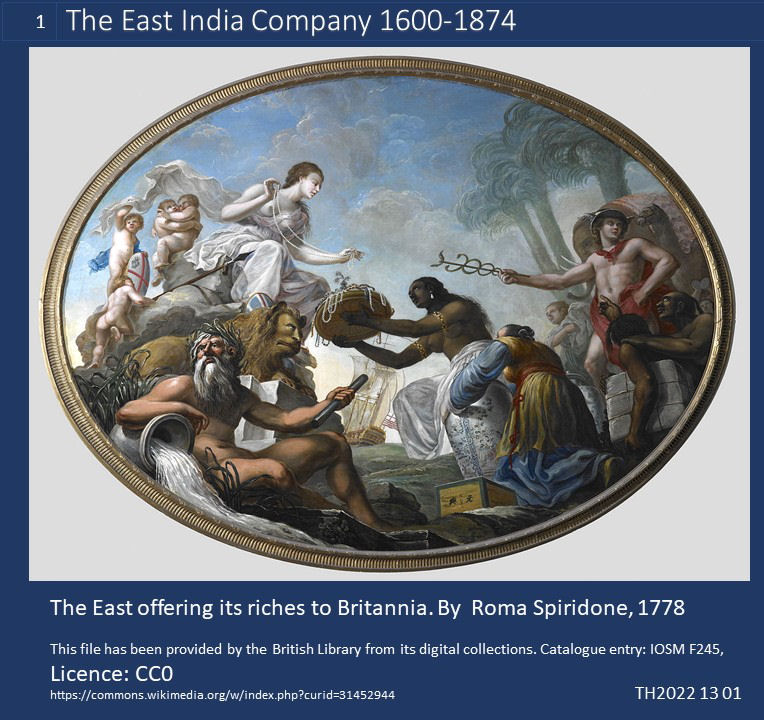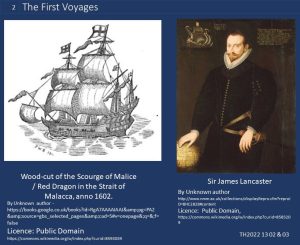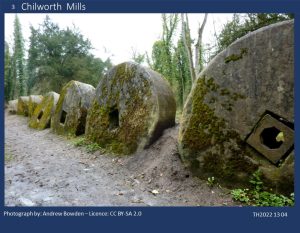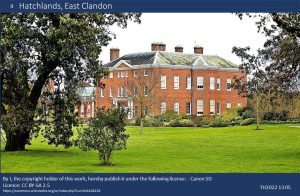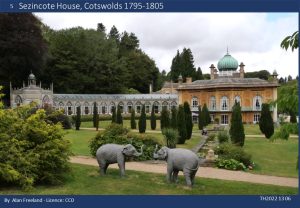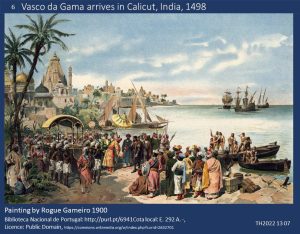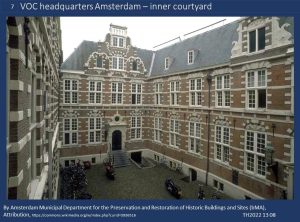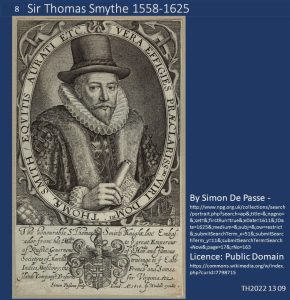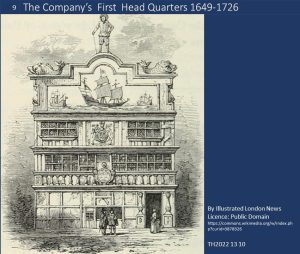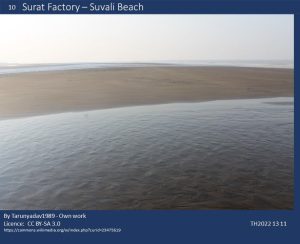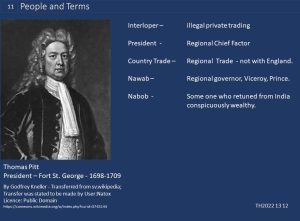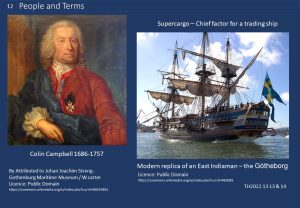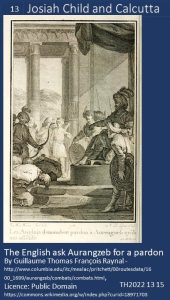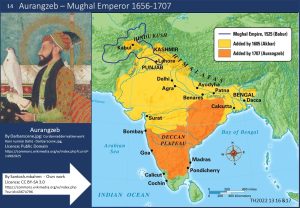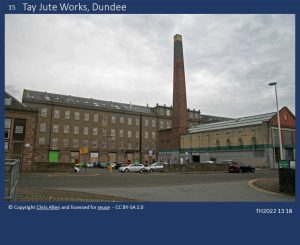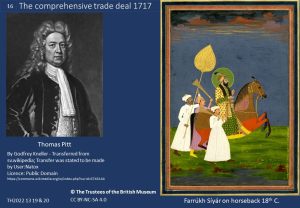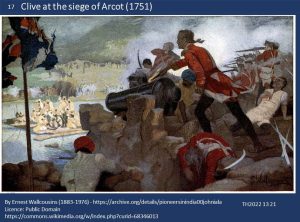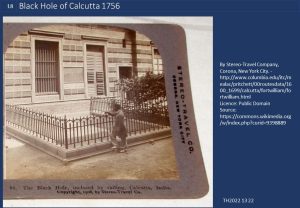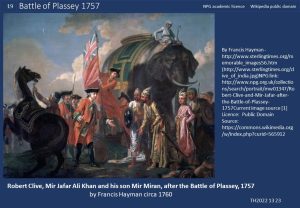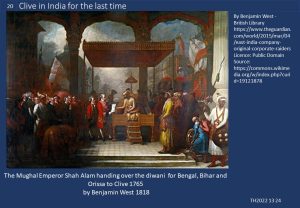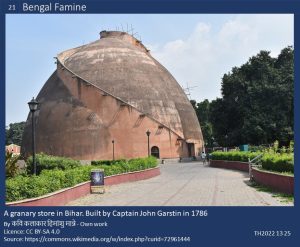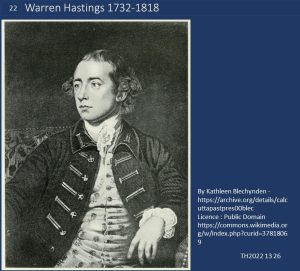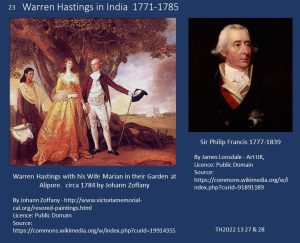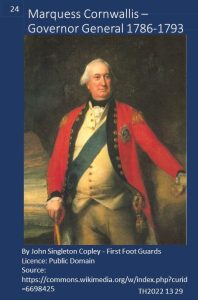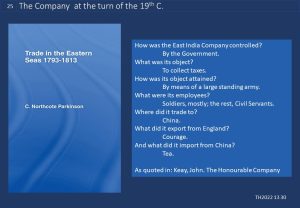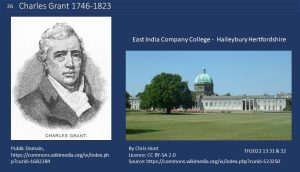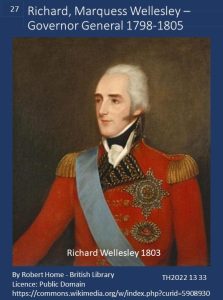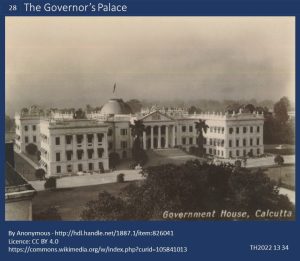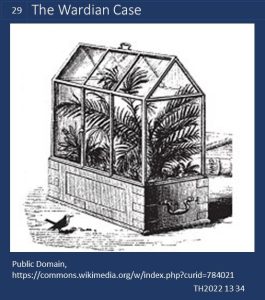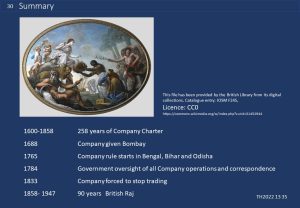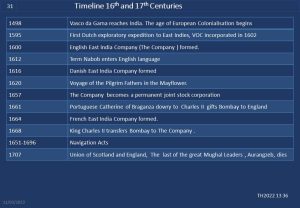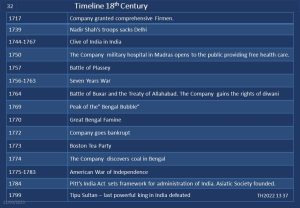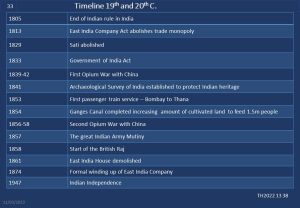Podcast: Play in new window | Download (Duration: 1:12:36 — 66.5MB)
Season 2022 – Talk 13 – The East India Company
In The East India Company Alan Freeland explains why he believes that the company was so important for Britain.
Click a thumbnail below to view the image gallery that accompanies the talk.
Foundation:
The company is founded in 1600, under a Royal Charter from Queen Elizabeth 1, to trade in the Indian Ocean area. They take this to be anywhere east of the Cape of Good Hope!
The company isn’t the first European company to trade in this area as the Dutch and Portuguese have been there for some years.
The initial charter is for 15 years giving the company a monopoly on trade with England.
Early voyages to the Indies:
Sir James Lancaster commands the first voyage in 1601 aboard the Red Dragon. In 1602, whilst in the Malacca Straits he takes the 1,200 ton Portuguese carrack Sao Thome carrying pepper and spices. This enables the voyagers to set up two ‘factories‘.
On their return to England, in 1603, they learn of Elizabeth’s death. Lancaster is knighted by James I because of the voyage’s success. The company has profitably breached the Spanish-Portuguese duopoly and new horizons open.
Charter renewed:
James I renews the East India Company’s charter for an indefinite period in 1609, however if trade is unprofitable for three consecutive years it will be annulled.
In 1615, James I instructs Sir Thomas Roe to visit the Mughal Emperor Nur-ud-din Salim Jahangir to negotiate a commercial treaty giving the company exclusive rights in Surat and other areas. This mission is highly successful!
The Dutch:
The company successfully expands and receives trading rights in other parts of India. The major competitors are the Dutch because they oust the Portuguese in 1640/41 to have a monopoly of the spice trade in the Straits of Malacca.
Because of the intense competition between the East India Company and the Dutch East India Company or Vereenigde Oostindische Compagnie, (VOC) there are the Anglo-Dutch Wars of the 17th and 18th centuries.
In the early 17th century, the Dutch East India Company is the world’s wealthiest commercial operation giving its shareholders 40% annual dividend.
Absorbed by the British Government:
The government sees the company as a good source of tax and fee revenue. When the company falls on hard times the Government, over a number of years, takes control of the company and creates the Imperial Raj.
Listen to the podcast and hear Alan tell the full story.
About this podcast:
This is an edited recording of a talk given to the Farnham u3a World History Group.
It is not possible to use some of the images from the original talks for copyright reasons.
The Farnham u3a site is here.
This podcast is also available through Amazon Music, Apple Podcasts, Castbox , Deezer, Podchaser, Spotify, Stitcher and Vurbl and others.
AKM Music licenses Media Magazine for use as the theme music.
© The MrT Podcast Studio and Farnham u3a World History Group 2018 – 2023

